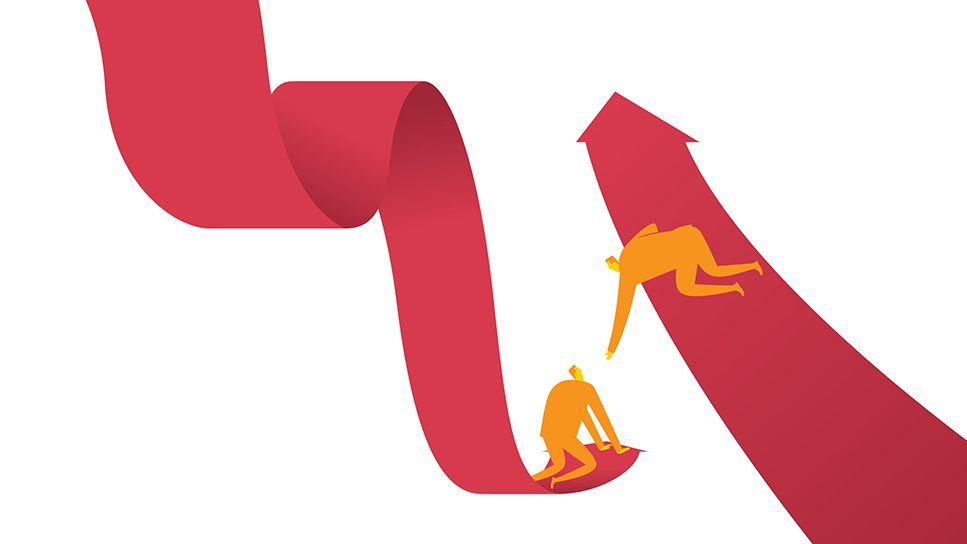Supervisors are key in supporting injured workers, WorkCover Queensland’s Matthew Cross says.
When a worker is injured at work, often their first port of call will naturally be their direct supervisor. The relationship between a supervisor and their direct report is key when it comes to actively encouraging that worker to stay at work or return to the workplace after their injury.
In this column I’ll explore some important factors in the return to work process and the role communication and the worker/supervisor relationship can play in getting workers back to work and back on the road to recovery.
HEALTH BENEFITS OF WORK
Employers play a pivotal role in the recovery and early return to work of injured workers but the role of supervisors is the most crucial of all.
Research has shown that the return to work process and rehabilitation are more effective if closely linked, or located in the workplace.
Early intervention and communication make a significant difference. Studies have proven that early treatment results in a faster return to work, less doctor visits and fewer restricted workdays (Franche et al, 2005, 2007).
It’s important to get workers back into the workplace to help aid their recovery. The Australasian Faculty of Occupational and Environmental Medicine (AFOEM) and the Royal Australasian College of Physicians’ position statement, Realising the health benefits of work, highlights that being off work for long periods of time can significantly reduce the likelihood of a worker ever returning to work and can have a negative effect on the worker and their family.
The paper indicates work plays an important role in any rehabilitation process because ‘doing’ promotes recovery. If a person is off work for:
- 20 days, the chance of ever getting back to work is 70 per cent
- 45 days, the chance of ever getting back to work is 50 per cent
- 70 days, the chance of ever getting back to work is 35 per cent.
Suffering an injury in the workplace can have not only a physical impact but a mental impact too, particularly if recovery is likely to be lengthy or prevent them from performing their pre-injury role.
That’s why an early return to work, perhaps performing alternative suitable duties, is so important. It helps keep workers in touch and connected with their place of work while they recover. Plus, it keeps them active and allows them to contribute something meaningful to the workplace.
So how can supervisor’s best assist return to work?
SHOW YOUR SUPPORT
The approach taken when the worker first reports their injury is critical.
A supportive and positive approach from supervisors at the time of injury and throughout the rehabilitation process can have a positive impact on recovery. It also improves the likelihood of a prompt and successful return to work. This in turn reduces the costs of the claim and the impact of the injury on the employer’s premium.
Regular communication lets your employee know they are valued and alleviates uncertainty about their job security.
Simple actions can go a long way towards helping your employee feel comfortable about returning to work.
- Be empathetic to show you care about the worker’s wellbeing,
- Make contact as soon as you’re aware of an injury, and maintain regular contact during their rehabilitation. It’s a good idea to discuss the timing and frequency of contact at the outset to ensure the worker is comfortable. Contacting the worker too frequently could be perceived as prying or placing pressure on the worker to return to work.
- Identify the most appropriate person in your organisation to maintain contact. Ideally this should be someone the injured worker has a level of trust and rapport with. Research has shown injured workers like their supervisors to maintain contact with them following an injury.
- Invite the worker to meetings or functions that they may be able to attend. Send them newsletters or updates about any announcements while they are unable to work, or a get well card. This helps them feel valued and maintains a connection with the workplace so they feel more comfortable returning to work.
- If one of your employees has sustained a psychological/psychiatric injury, it is equally important that communication is maintained while they are unable to work. If you’re not sure how or when to contact your worker in this situation, a WorkCover Customer Advisor can help you.
- If the team or workplace is having a morning tea or lunch, check in to see if they are medically fit and want to attend. This will help keep the connections with their peers and feel they are still part of the team.
Here is some advice to help you prepare for conversations with an injured worker: - Remain positive and avoid placing blame about the injury, as negativity can impact on a worker’s motivation to return to work.
- Focus on things the worker can do, rather than those they can’t due to their injury.
- Reassure the worker their job is safe, and encourage them to focus on their recovery from injury.
- Listen to any concerns and address these quickly.
- Ask your worker when they feel they could return to work and discuss the suitable duties available.
- Tell your worker you look forward to them returning to work.
- Ask your worker what they would like you to tell their peers. The team will notice their absence and having something to say will help stop any speculation.
- A simple “R U OK?” goes a long way.
Simply maintaining contact with your employees while they are unable to work due to injury can help ensure their recovery and return to work is smooth and prompt.
KEEPING EVERYONE ON THE SAME PAGE
We also know that contact between healthcare providers and the workplace significantly reduces the length of time off work. Therefore it’s useful to have a person who can coordinate the return to work program. This person can:
- provide individual planning and coordination adapted to the worker’s initial and ongoing needs;
- make sure communication remains open between all parties; and
- ensure the worker and other players understand what to expect and what is expected of them.
This is often where the direct supervisor comes in to aid or coordinate the return to work program. It’s important that supervisors are supported, have an awareness of workplace disability prevention and the far-reaching benefits of a safe workplace and employee wellbeing.
BEST PRACTICE FOR SUPERVISORS
There are lots of effective ways to ensure both the employee and the supervisor are supported during the return to work process. It’s important that a supervisor:
- is proactive.
- communicates openly.
- listens to the individual’s concerns.
- understands the individual may still be unwell even if they’re back at work.
- has an open-door policy.
- adapts their approach to the individual.
- allows the individual to maintain a certain level of normality.
- is quick to respond to the individual.
- takes responsibility for the individual’s rehabilitation.
- acknowledges the impact of the individual’s illness.
- remains positive.
It’s also important that supervisors don’t:
- lose patience with the individual.
- display aggressive actions.
- question the individual’s every move.
- go against the individual’s requests for work adjustments.
- make the individual feel like a nuisance.
By using some of these techniques, you’ll minimise the risk of the worker feeling alienated and encourage them to remain positive about their rehabilitation and return to work.
TAKING INITIATIVE
Various mining companies have shared how supervisors in their organisations support the return to work process. Some great activities include:
- A front line supervisor training program to improve understanding and show the human face of the organisation. It has shown that employees are more amenable to returning to work.
- Supervisors challenging workers when appropriate if something looks out of place. This has helped in a number of areas such as the absentee management process.
- A “straight talk” program for discussions with employees. All discussions supervisors have with employees are to be based on facts rather than emotions and clearly identify any concerns or current issues.
As well as having good return to work practices, a company’s policies, procedures and workplace culture are also extremely important. There is strong evidence that health and safety policies and procedures can be cost-effective and may reduce sickness absence by between 20-60% (Waddell et al, 2008).
Disclaimer: WorkCover Queensland is the workers’ compensation insurer for all companies in Queensland, other than those who are self-insured. Therefore the advice and opinions in this column, while general in nature, may not apply to all states and territories in Australia. For specific advice you should contact your relevant insurance provider.
ABOUT MATTHEW CROSS
WorkCover Queensland Customer Service Manager, Mining.
Matthew Cross is a Customer Services Manager in the mining industry for WorkCover Queensland. Matthew has 10 years’ experience in workers’ compensation, in both WorkCover and self-insurance, and has a background in business in Australia and the UK. He works closely with industry associations, unions, employers, as well as medical and allied health associations and providers.














Add Comment